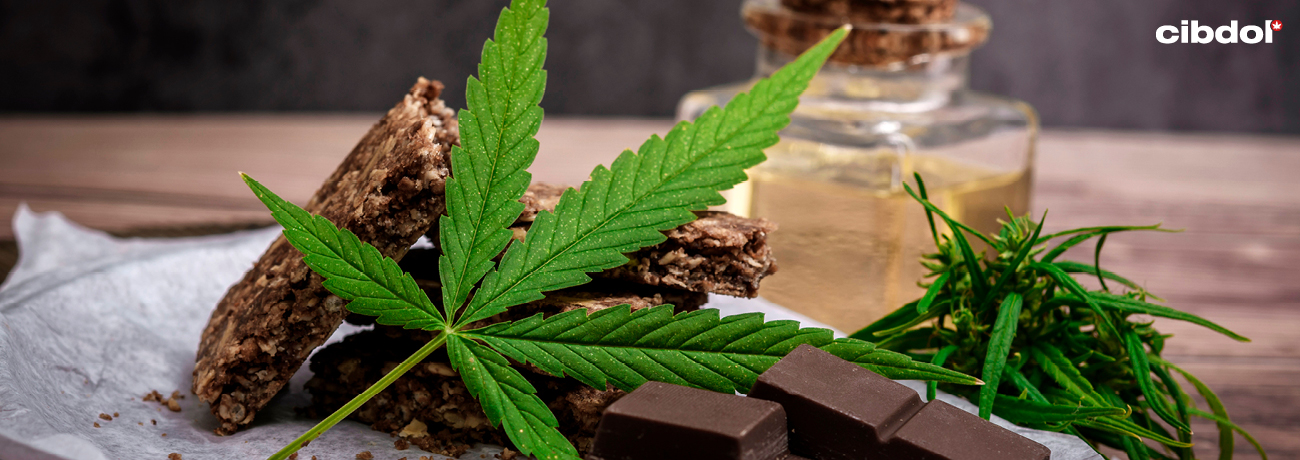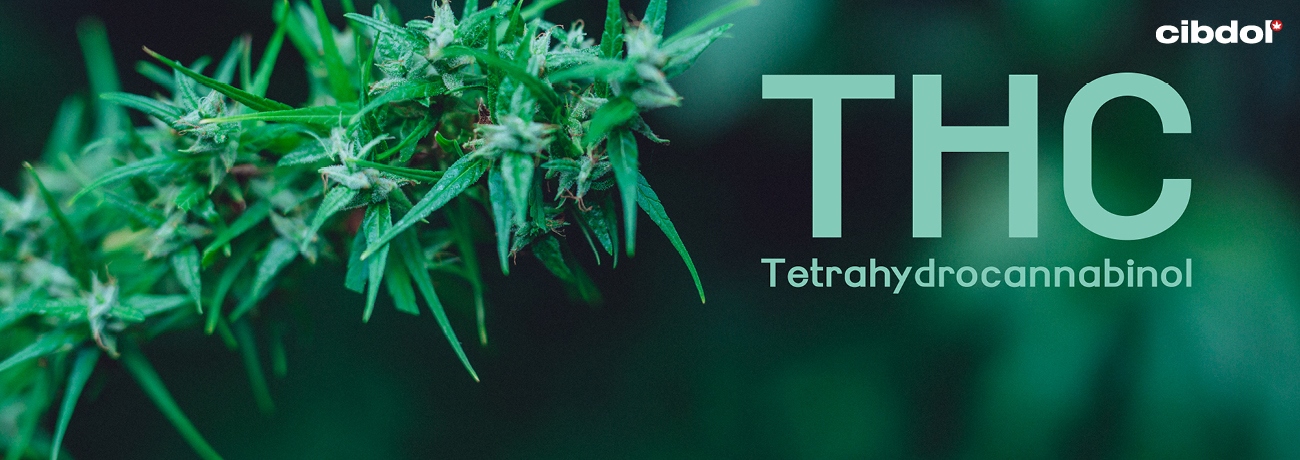Will Taking CBD Oil Increase Your Appetite?

Our relationship with food is a complicated affair, with genetic and environmental factors all playing a part in how much we eat. But, with a healthy appetite being crucial for robust functioning, how could CBD oil support your wellness journey?
Contents:
How appetite works
To understand if CBD oil can stimulate our appetite, we first need to understand what's going on inside our body when we feel hungry. To that end, it's important to outline the difference between hunger and appetite.
Hunger is the need to eat, an innate survival mechanism that keeps our body in optimal condition. After all, food is energy, and without the energy to move, our prehistoric ancestors wouldn't have lasted very long!
Appetite, on the other hand, is the desire to eat. When we're hungry, we need food, that's inevitable, but our appetite defines the types of foods we like and find appealing. Simply put, appetite is "a natural desire to satisfy a bodily need, especially food".
It's perfectly normal to feel hungry and seek out food. But, in addition to physiological mechanisms (enzymes, neurochemicals, and receptor signalling), it's environmental factors that tend to wreak havoc on our eating habits.
For example, imagine you're at a family gathering or work event. Even if you've eaten beforehand, it's highly likely you'll indulge in food or snacks being passed around. In this scenario, it is not the physical need for food that drives us, but a physiological one—how we think and feel also affects how much or how often we eat.
How does CBD oil affect appetite?

The Cannabis sativa species has a reputation for affecting how much we eat because of THC. By binding with cannabinoid receptors in the brain, THC overrides the signals that would usually tell our body we're full. However, in the case of CBD oil, we aren't dealing with THC. Instead, CBD oils are derived from hemp, a selectively bred variant of Cannabis sativa low in THC and devoid of psychotropic side effects.
Rather than binding directly to cannabinoid receptors, CBD appears to work indirectly, boosting the overall efficiency of the endocannabinoid system—a vast network responsible for maintaining balance. Fortunately for us, that balance extends to fundamental biological mechanisms such as mood and appetite.
But, the vast influence of CBD does present a problem. While some evidence suggests CBD oil can promote appetite, other results indicate it may decrease feelings of hunger—so which one is correct?
Can CBD oil increase appetite?
CBD's ability to stimulate appetite may stem from its influence over serotonin receptors[1]. 5-HT receptors play an important role in appetite and digestion, and studies suggest CBD may help increase appetite by reducing symptoms of an upset stomach[2], rather than affecting feelings of hunger directly.
Can CBD oil suppress appetite?
On the opposite end of the spectrum, there is potential that CBD oil could suppress appetite[3]. Again, this appears to have less to do with the cannabinoid directly affecting mechanisms involved with appetite, and more to do with CBD's soothing effects. Remember, psychological factors heavily influence our appetite, and many people eat as a coping mechanism when they feel pressured or uneasy.
How to use CBD oil to support a healthy appetite
Studies on CBD and appetite are ongoing, but don’t underestimate the cannabinoid’s potential. A few drops of CBD oil could help you focus on building habits that'll encourage a healthy appetite while supporting your body's drive to maintain a balanced state.
The difficulty, however, is developing habits that work alongside CBD oil—but Cibdol can help. Below you'll find several straightforward ways you can encourage and support a healthy appetite.
Stay active
It will probably come as no surprise, but staying active is one of the best ways to support a healthy appetite. First, by exercising (no matter what you do), you'll burn calories. Not only is this great for weight loss, but it means we can indulge in sweet treats with a little more freedom. Although it's essential to develop a balanced approach to eating, and the majority of your diet should be healthy, it's just as important to eat the foods you enjoy—even if it is cake!
Second, if you're someone that struggles to eat regularly, exercise can help with that too. Regular cardio sessions release endorphins that make us feel good and encourage the body to want to refuel.
Supplement with omega fatty acids
Omega fatty acids have a plethora of benefits, one of which appears to be a positive influence[4] on weight loss. Not all omega fatty acids are the same, though, so it's essential to focus on omega-3 fatty acids found in oily fish, nuts, and hemp seeds. In fact, cold-pressed hemp seed oil is an excellent source of omega-3, antioxidants, and plant protein.
Stick to a schedule
Humans are creatures of habit, but with busy work and social schedules, eating is usually the first activity we drop. However, only eating when we can, and not at fixed intervals, is a surefire way to develop unhealthy eating habits. Instead, if we try to eat at the same time throughout the day, it can stop us from binging and trying to satiate our hunger with snacks.
CBD oil and appetite — the bottom line
Appetite is a complex mechanism. Considering the nuances of CBD oil and the diversity of our endocannabinoid system, there's still a lot to learn about how the oil can affect us.
It's important to realise that our relationship with food is just as emotional as it is physical. While CBD oil may affect appetite differently in different people, including it as part of a healthy diet provides an excellent start to your wellness journey.
Why not visit the Cibdol store and browse our comprehensive selection of CBD oils, capsules, and deals? Or, if you're interested in CBD, but not sure which product is right for you, our CBD Encyclopedia can help.
[1] Bolognini, D., Rock, E. M., Cluny, N. L., Cascio, M. G., Limebeer, C. L., Duncan, M., Stott, C. G., Javid, F. A., Parker, L. A., & Pertwee, R. G. (2013). Cannabidiolic acid prevents vomiting in Suncus murinus and nausea-induced behaviour in rats by enhancing 5-HT1A receptor activation. PubMed. https://pubmed.ncbi.nlm.nih.gov/23121618/ [Source]
[2] Farrimond, J. A., Whalley, B. J., & Williams, C. M. (2012). Cannabinol and cannabidiol exert opposing effects on rat feeding patterns. PubMed. https://pubmed.ncbi.nlm.nih.gov/22543671/ [Source]
[3] Rock, E. M., Bolognini, D., Limebeer, C. L., Cascio, M. G., Anavi-Goffer, S., Fletcher, P. J., Mechoulam, R., Pertwee, R. G., & Parker, L. A. (2012). Cannabidiol, a non-psychotropic component of cannabis, attenuates vomiting and nausea-like behaviour via indirect agonism of 5-HT(1A) somatodendritic autoreceptors in the dorsal raphe nucleus. PubMed. https://pubmed.ncbi.nlm.nih.gov/21827451/ [Source]
[4] Safaeiyan, A., Ostadrahimi, A., Sanayei, M., Rasmi, Y., & Taraghijou, P. (2018, September 13). Effect of omega-3 fatty acids on appetite, energy and macronutrient intake and body weight in obese adults: a randomized clinical trial. Mattioli 1885. https://www.mattioli1885journals.com/index.php/progressinnutrition/article/view/5481 [Source]







